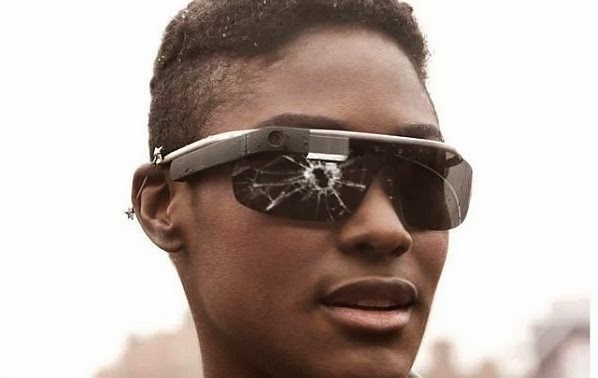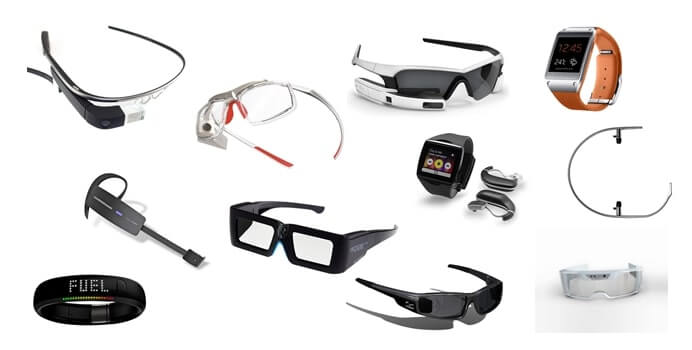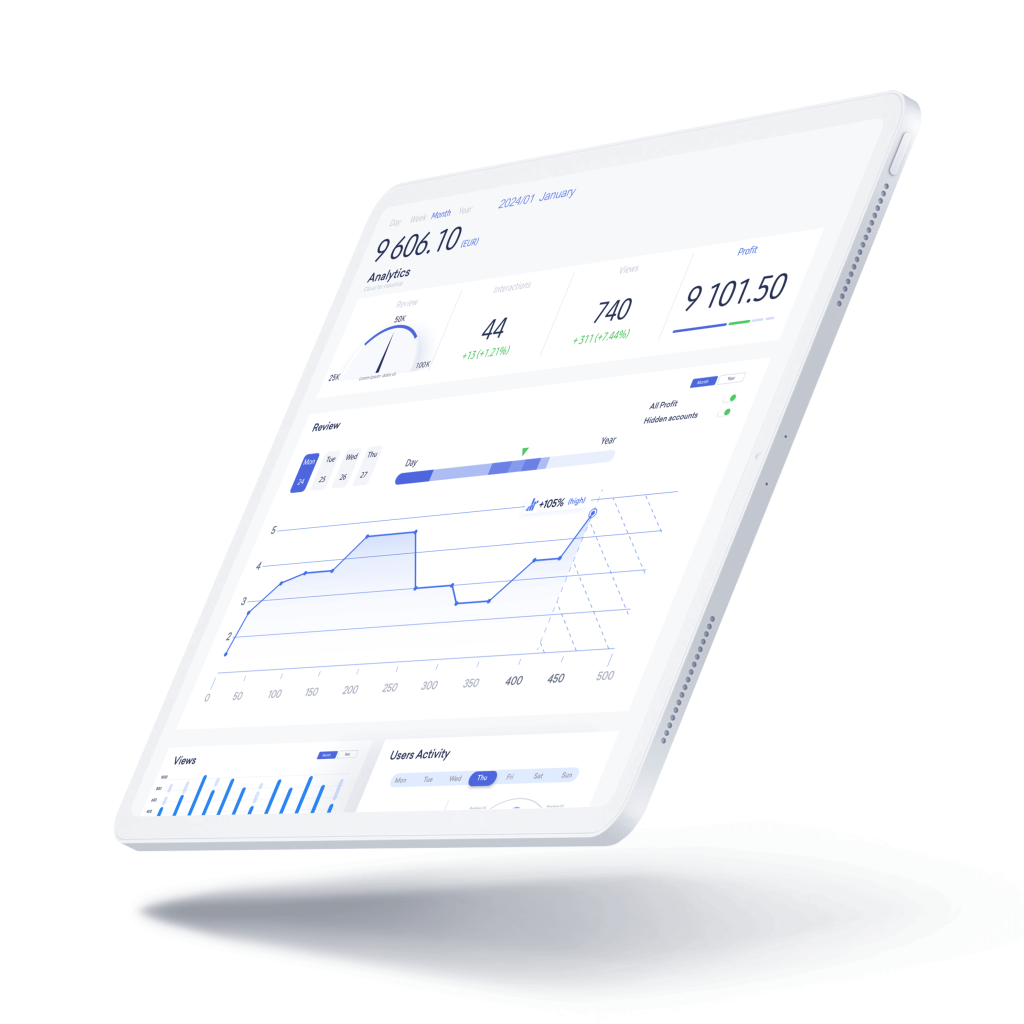
Disclaimer: the following is my own opinion and does not express the official position of ELEKS or its R&D team. In fact, some of the team members argue with me a lot that Glass is the best device ever, it will conquer the world and other things like that. Of course, I'm exaggerating here a bit, but still it looks very likely for me that Glass will eventually fail as a commercial product.
So, what's the problem with Google Glass? Well, there are two aspects of it:
- The device itself. I'll dwell upon its drawbacks in the next section.
- Its positioning and marketing. I'll show you some interesting historic analogies below and try to project them on to the future.
Five Reasons Why Google Glass Sucks

So, what's wrong with the device? When you watch the ads or listen to Google employees who evangelize Glass, it looks so futuristic and cool that you're starting to believe the future is here and search for the Order button. But things change when you actually get it. We bought one for our R&D team a few months ago and... well, I wouldn't say it is a big disappointment but the device is very far from being market-ready. Here is the list of 5 things that we found very annoying about Google Glass:
- The battery. 4 hours of work in standard mode, 40 minutes when watching YouTube videos. This is according to the technical specs, but in reality the battery life is much worse. Seriously, Google? You produced a wearable device that dies before you go to lunch even if you have it 100% charged while drinking your morning coffee. Compared to this, even my Nexus 4 (that hardly stays alive for 24 hours) looks like a pretty energy-effective device.
- The heat. Google Glass is hot. Everyone stares at you when you wear it but, unfortunately, that's not the reason why the Glass is on fire. Try recording a video for a little longer than 10 seconds or using World Lens for a minute – any intensive computation makes the Glass hot. Eventually, you'll face the "Glass must cool down to run smoothly" message. In fact, my co-workers often put the device on the windowsill to cool down when they test or debug heavy code. Thankfully, it’s winter now.
- Voice recognition. It simply sucks. Perhaps, if you are a native English speaker and live in California or in the UK, it works for you most of the time. At least when you don't try to search for some non-English terms or send an e-mail to your imaginary Polish friend Grzegorz Brzęczyszczykiewicz (please don't take me wrong, I have nothing against Polish – living in the Western Ukraine, I probably even have them among my ancestors). It would also be nice to hear some feedback from Scottish users. In fact, the worst thing about Glass' voice recognition is that you can't correct it with the keyboard (using paired smartphone's keyboard for instance). Seriously, was it that hard to implement such a thing?
- The reliability. The screen on our device died less than in three months after we bought it. Other are also complaining about this. Sure, the technology is very new, but this is still disappointing, taking into account all the buzz surrounding it.
- The price. Google Glass should cost $300 not $1,500. With all the disadvantages above, $1,500 is way too much for this piece of hardware.
I must admit here that problems 3, 4 and 5 are likely to be fixed in Glass 2.0 that will be released in future. However, problems 1 and 2 look like a much harder nut to crack, and it might take long time to fix them, even for a giant like Google.
Although these problems are significant roadblocks for Google Glass, I don't think they are the main reason why it will fail.
Here, I'd like to make a short historical overview of another market, as history tends to develop in cycles and allows us to predict the future.
A Very Brief History of Smartphones
Today, many people believe that smartphones were invented by Apple when iPhone was launched. I believe readers of this blog don't think that way. Even though Apple had a great breakthrough and brought smartphones to the mass consumer market, there were smartphones long before iPhone was announced.

I'd like to mention four of them:
- IBM Simon was the first member of the family: the $899 brick-like device with a phone, PDA-like functionality and even a touchscreen. Can you believe it was released 17 years before the iPhone – in 1992?
- Some of you might remember the Palm devices – they were very cool and widely used as the perfect mix of a PDA and phone in the 90s and early 2000s.
- Nokia communicators were amazing back then – I dreamt about one when I was a student.
- And, of course, the Blackberry: you can't imagine a manager in 2000 without one in his or her pocket.
What do all these devices have in common? They were all not mass consumer market devices but oriented mainly toward business users. As technology was in its early stage of development, it was easier to make it work for a small number of professional use cases than to make it work for virtually everybody. And it is much easier to educate and engage business users when it comes to using a new device.
But even though smartphones were used relatively rarely in the pre-iPhone era, they actually did several very important things that predetermined the later success of smartphones on the mass market:
- They helped develop technology – size, energy-efficiency, screens, batteries, wirelessness, etc.
- They prepared the market for a new kind of device – like your business communicator, but better and much more useful in everyday life.
- Classic smartphones were not that bad and still compete in their niche markets. I don't mean the generic business communicator market, which was too big to be ignored by the new generation players but rather specific use cases when you need non-standard sensors (e.g. smartcard scanners) or improved characteristics (e.g. a water- or shockproof body) – they are still out there.
You are probably wondering why I'm talking about smartphones while this article is supposed to be about smartglasses? Because, in my opinion, Google Glass is not the iPhone of the smart-glass market. It is rather something between the Palm Pilot and the IBM Simon.
The Upside
The good thing about Google Glass is that Google actually generated great momentum in the market, inspired lots of people to work on smartglasses and turned investors’ attention to this field.

There are a lot of interesting concepts around, including those that actually use Google Glass. Take, for example, ELEKS' own Google Glass Experiment – we created it to demonstrate our vision of a real-life Glass-powered game, but I must admit that it might be very hard to make it production-ready due to the limitations I mentioned above. Other great examples are the NYC Police Department experiments, Google Glass usage for surgery, logistics and warehousing and much more.
What's bad about them is that Google doesn’t position Glass as an enterprise device, so I think they'll eventually switch to competitive smartglasses that are more oriented towards the enterprise market. There are several very promising startups that make their own hardware. I personally like Lumus, but there are other examples: Meta SpaceGlasses, GlassUp, Recon Jet, to name a few. And, of course, corporations like Sony, Samsung, SAP and even BMW have also accepted the challenge.
The great thing about all these organizations is that they mostly don't work on general-purpose smartglasses that will conquer the world, but rather on more focused solutions, oriented to satisfy specific business needs. And, unlike Google Glass, they have a great chance to be successful. All those products will slowly take over the enterprise market and prepare a foundation for the future conquest of the mass consumer market. People will get used to seeing police officers wearing smartglasses and communicating with doctors in smartglasses. And then some corporation will come and push smartglasses back to the mass consumer market. It even might be Google itself, if they are still in this business by then.
Summary
Once again, I'm exaggerating a little here. Google Glass might have a bright future, but then again, it also might not. What I really believe is that in the next 5-10 years we will see numerous cases of smartglasses fantastically changing businesses, people and the entire world. The only question is will it be Google Glass or some other product? Anyway, the future is closer than you think. Stay tuned!
Related Insights








The breadth of knowledge and understanding that ELEKS has within its walls allows us to leverage that expertise to make superior deliverables for our customers. When you work with ELEKS, you are working with the top 1% of the aptitude and engineering excellence of the whole country.

Right from the start, we really liked ELEKS’ commitment and engagement. They came to us with their best people to try to understand our context, our business idea, and developed the first prototype with us. They were very professional and very customer oriented. I think, without ELEKS it probably would not have been possible to have such a successful product in such a short period of time.

ELEKS has been involved in the development of a number of our consumer-facing websites and mobile applications that allow our customers to easily track their shipments, get the information they need as well as stay in touch with us. We’ve appreciated the level of ELEKS’ expertise, responsiveness and attention to details.
